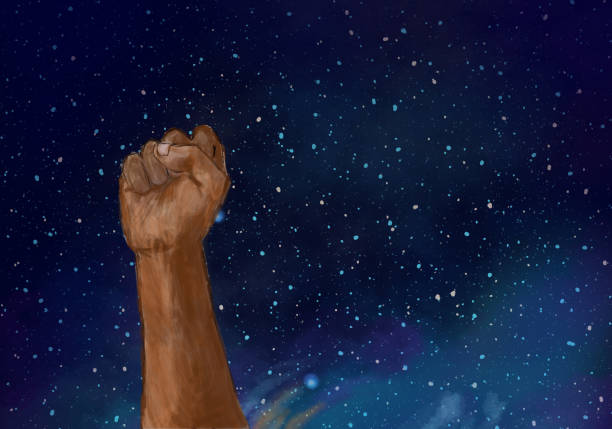Understanding The Black Experience In America | |
|
One of the most disturbing aspects of the black experience in America is the disappearance of black culture and identity that is which is replicated across time. Maafa, or the African Holocaust, defines the causes of this pattern that are more complicated than one would think. After a couple of generations, immigrants such as the Italians are incorporated into the dominant culture of whites. Because of slavery, African Americans were not immigrants and didn't have the same capacity to be assimilate. Even after slavery, American assimilation was fraught with racism both legally and socially. This absence of social interaction has resulted in that African-Americans in America are not assimilated and remain distinct. For example, ethnic groups like Chinese Americans often live in isolated areas and retain their culture and identity as a people. African Americans are neither African nor are they American in the truest sense, despite the fact that they maintain many of the same religions as well as customs and beliefs that are shared by the white majority. While African Americans have carved out their own distinct culture, this one is still fighting for recognition due to the ongoing effects of Maafa. Maulana Karenga claimed that the demise of human potential was a matter of changing the definition of African humanity for the world as well as poisoning the past and current relations with others who only know us through stereotyping, which in turn, severing relationships between peoples. In this context, slavery destroyed identity among the blacks that were taken as well as the subsequent generations. In addition to legal and social exclusion, Maafa stripped blacks from their culture and their identity. In the wake of this loss of culture it is a constant mental issue that is a result of Maafa that sees blacks continually attempt to reassert, establish their identity or establish their own, only to find that their efforts are futile due to the fact that Maafa can have a detrimental effect on black tradition and culture. This is evident in the struggles of African-American cultural movements in the US. Harlem RenaissanceIn the 1920's and 1930's, Harlem Renaissance was a period of African American culture flourishing in the arts of creativity. The historical perspective had a significant influence on Harlem Renaissance literature. This is especially evident when you look at the influences that shaped them, along with a number of other aesthetic and cultural trends that came from decades prior. African American social movement, primitive art, and the separation of culture of America from Europe all had an impact on the writing of African American authors of the Harlem Renaissance. To discover more information about visit, you've to visit black museums site. African Vs. Black The term African American became more common in American usage in the 1990s and the 1980s. Jesse Jackson, a leader in the struggle to provide identity to African Americans within America is one of these leaders. The inconsistencies associated with the term African Americans made it less of a uniting force in society and more of a cause for contention. The issue was made public by Barrack Obama and Alan Keyes in 2000's election campaign.
The debate began during the campaign when Alan Keyes (a black Republican opponent to the Senate seat in Illinois) asked whether Obama. Obama should claim an African American identity. "Barack Obama has claimed to have an African-American heritage" Keyes said on the ABC program "This Week". "Barack Obama is of the same race, which means I share his physical characteristics. But we are not of the same heritage." "My ancestors toiled in slavery in this country," Mr. Keyes declared. "My consciousness, who I am as a human being, is shaped by my struggle, deeply emotional and painful, with the reality of my heritage." (African American Registry, 2015) Mr. Keyes and Mr. Obama At the time, Mr. Keyes and Mr. Obama, highlighted the much larger issue of defining African American Identity. In the early 90s, blacks became involved in the cause of African Identity which could be seen in the Million Man March, African art and clothing that were being popularized. Important figures like Oprah Winfrey who promoted African American literature were at the forefront of this movement for claiming African American identity. This period culminated in the presidency of Barack Obama in 2008. But the issues of identifying African American culture and identity persist, and it seems to be a direct result of slavery and the continuing effects of Maafa that destroyed identity and culture. Conclusions In the absence of other rational reasons, one must think that there is an underlying force that permeates African American society which makes the culture and identity difficult to define. Maafa and the persistent effects of systemic racism are the only possible reasons for African Americans who remain disenfranchised when compared with other ethnic communities within the US. The stories of the African Diaspora and those who have been marginalized Maafa, and a victim of discrimination highlight the differences in African Americans and people from different countries, such as Italian Americans, who are capable of tapping into a rich and long culture and history. Although there is a common concept of blackness and identity that pervades all black members of the community, the culture and identity remain in the development of America. | |
 |
